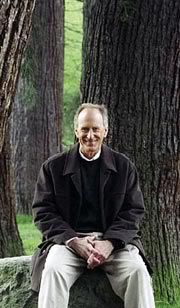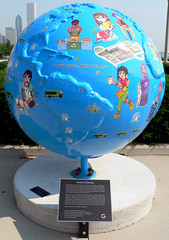In a few paragraphs, I’ll get to the promised interview, but first a few words of my own. (If you’re short on time, scroll to the interview box).
 Every year, I greet Earth Day with mixed feelings because the first one came at a time of tremendous upheaval in another realm.
Every year, I greet Earth Day with mixed feelings because the first one came at a time of tremendous upheaval in another realm.
Although that first Earth Day in 1970 – which Denis Hayes coordinated – focused needed attention on the world’s environmental troubles, it was also a diversion. Just a week after Earth Day, on April 29, the U.S. sent troops into Cambodia and, within three weeks, six students had been killed during protests at Kent State and Jackson State universities. Then, too, while millions joined in Earth Day activities, the event was peppered with corporate sponsors, many of whom were more interested in making a public relations coup than anything substantively ecological.
Indeed, some corporate participants took a downright hostile tone when it was pointed out that something engaged in by them might be environmentally destructive.
Nonetheless, for a time, in part because Richard Nixon needed something positive to balance his administration’s disastrous continuation of the war in Southeast Asia and because he was pressured by Democrats like Earth Day founder Gaylord Nelson and members of his own party, quite a number of successful environmental initiatives were undertaken, including the creation of the Environmental Protection Agency and legislation on clean water and clean air.

 That is, truly enjoing
That is, truly enjoing  Representatives (facing an Administration veto threat)
Representatives (facing an Administration veto threat)  Every year, I greet Earth Day with mixed feelings because the first one came at a time of tremendous upheaval in another realm.
Every year, I greet Earth Day with mixed feelings because the first one came at a time of tremendous upheaval in another realm.